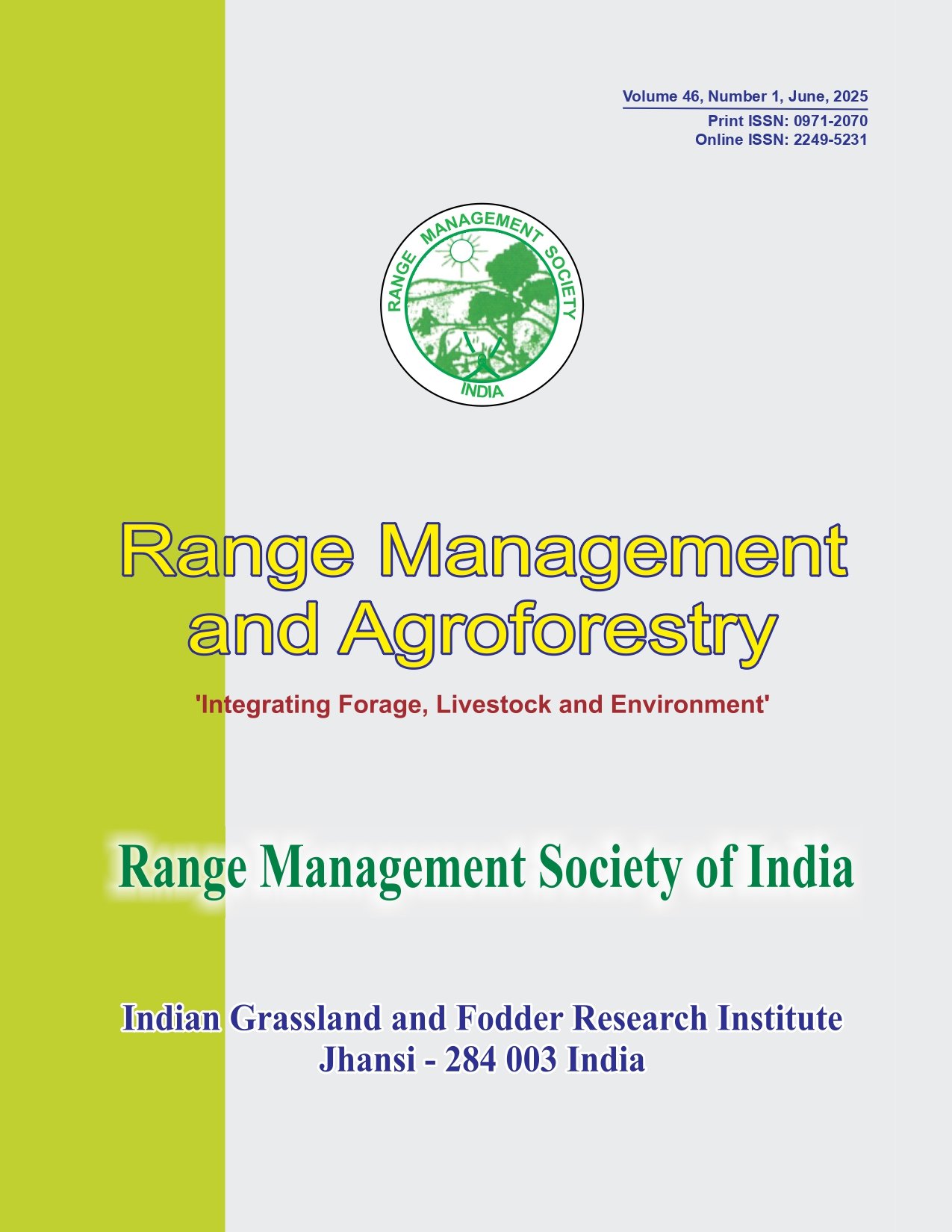Adaptability and nutritive value of Maku lotus (Lotus pedunculatus) in Nilgiri hills of India
Keywords:
Fodder, Legume, Maku lotus, Proximate compositionAbstract
A study was carried out to evaluate the adaptability, yield and nutritional value of Maku lotus (Lotus pedunculatus) under the typical mountain environment of Nilgiri hill region. The plant was established well in the acidic soils of swamp. The mean number of days to form new shoots was 32 days and ranged from 28 to 37 days. The established Maku lotus spread throughout the swamps in 60 to 80 days. The plants were susceptible to frost, however, rejuvenated during the ensuing rains after winter. The mean yield of fodder recorded in eight cuttings was 2.54 t/ha/annum on dry matter basis. The crude protein level of the legume was 15.72 per cent. The ability of the plant to establish well in acidic, water logged soils could enable its use for fodder production in the natural swamps. Thus, Maku lotus could be considered for inclusion in the cropping programme for fodder production in the Nilgiris.




